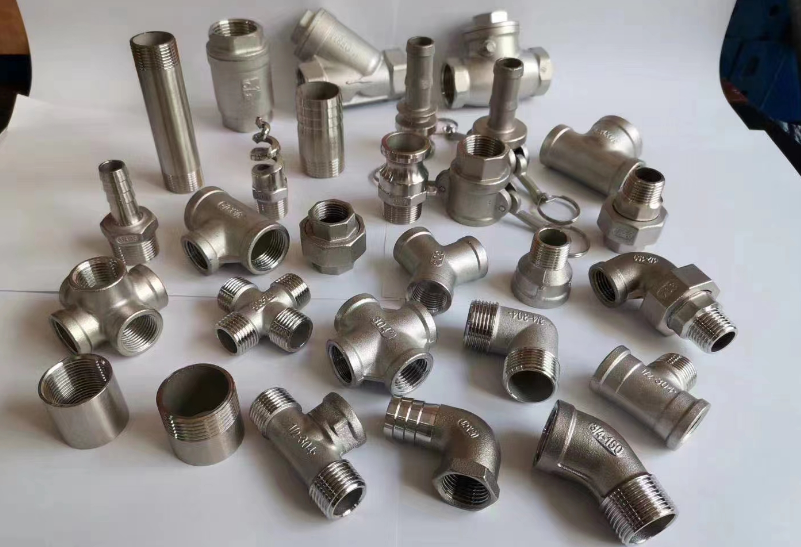When it comes to high-performance metallic materials, stainless steel, and Inconel are two undisputed heavyweights in the industry. So, stainless steel vs Inconel – what’s the difference? In this article, we delve into the nitty-gritty of the differences between these two metals, exploring their composition, properties, and areas of application.

Stainless Steel vs Inconel: What’s the Difference?
Stainless Steel vs Inconel – 1. Composition:
Stainless Steel: Stainless steel is an alloy of iron with a minimum of 10.5% chromium. The chromium content makes it corrosion-resistant by forming a protective oxide layer on the surface when exposed to oxygen. Stainless steel can be further classified into different grades based on its composition and properties. For example, austenitic stainless steel (e.g., 304, 316) contains nickel and molybdenum for improved corrosion resistance and ductility.
Inconel: Inconel is a nickel-based superalloy that typically contains chromium, iron, and other elements like molybdenum, titanium, and aluminum. The high nickel content makes Inconel alloys highly resistant to corrosion and oxidation, especially in high-temperature environments. Inconel alloys are often used in aerospace, chemical processing, and other demanding applications.
Stainless Steel vs Inconel – 2. Mechanical Properties:
Stainless Steel: Stainless steel exhibits good strength, ductility, and toughness. It can be easily formed and welded, making it suitable for a wide range of applications. However, its strength and hardness decrease significantly at elevated temperatures, limiting its use in high-temperature applications.
Inconel: Inconel alloys offer excellent strength, ductility, and creep resistance at high temperatures. They maintain their mechanical properties even in severe environments, making them ideal for applications that require durability and performance at elevated temperatures.
Stainless Steel vs Inconel – 3. Corrosion Resistance:
Stainless Steel: Stainless steel’s corrosion resistance is mainly due to the chromium oxide layer that forms on its surface. This layer protects the underlying metal from further corrosion. Austenitic stainless steel grades are resistant to corrosion in most environments, but they are susceptible to chloride stress corrosion cracking in chloride-containing environments.
Inconel: Inconel alloys’ resistance to corrosion is exceptional, especially in high-temperature and oxidizing environments. The high nickel content and the presence of chromium and other alloying elements provide excellent resistance to corrosion and oxidation. These alloys are commonly used in chemical processing equipment, exhaust systems, and other harsh environments.
Stainless Steel vs Inconel – 4. Applications:
Stainless Steel: Stainless steel is widely used in various industries due to its corrosion resistance, ductility, and weldability. It is commonly found in applications such as pipelines, water treatment plants, food processing equipment, and architectural structures. Austenitic stainless steel grades are also used in chemical processing and marine applications.
Inconel: Inconel alloys are primarily used in high-temperature applications where corrosion resistance and mechanical strength are critical. They are commonly found in aerospace components, jet engine parts, industrial furnaces, and chemical processing equipment. Inconel’s resistance to creep and fatigue at high temperatures makes it an ideal material for demanding applications.
Conclusion
In conclusion, stainless steel and Inconel are two distinct materials with their own unique properties and applications. Stainless steel is a versatile material with good corrosion resistance and ductility, suitable for a wide range of applications. On the other hand, Inconel alloys offer exceptional strength and corrosion resistance at high temperatures, making them ideal for demanding applications in aerospace, chemical processing, and other industries.
When selecting a material for a specific application, it’s crucial to consider the environmental conditions, temperature requirements, and mechanical properties needed to ensure the best performance and durability.
Thank you for reading our article and we hope it can help you to have a better understanding of the differences between stainless steel vs Inconel. If you are looking for stainless steel suppliers online now, please don’t hesitate to contact Sino Stainless Steel.
As a leading supplier of stainless steel products from Shanghai, China, Sino Stainless Steel provides customers with high-quality stainless steel products such as cold-rolled stainless steel sheets, colored stainless steel sheets, stainless steel strips, stainless steel plates, stainless steel bars, and stainless steel tubes at a very competitive price.
 :+86-13012867759
:+86-13012867759  :export86@sino-stainless-steel.com
:export86@sino-stainless-steel.com